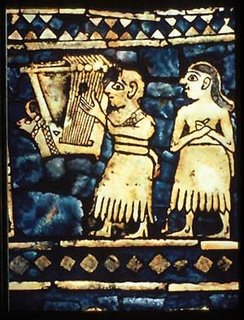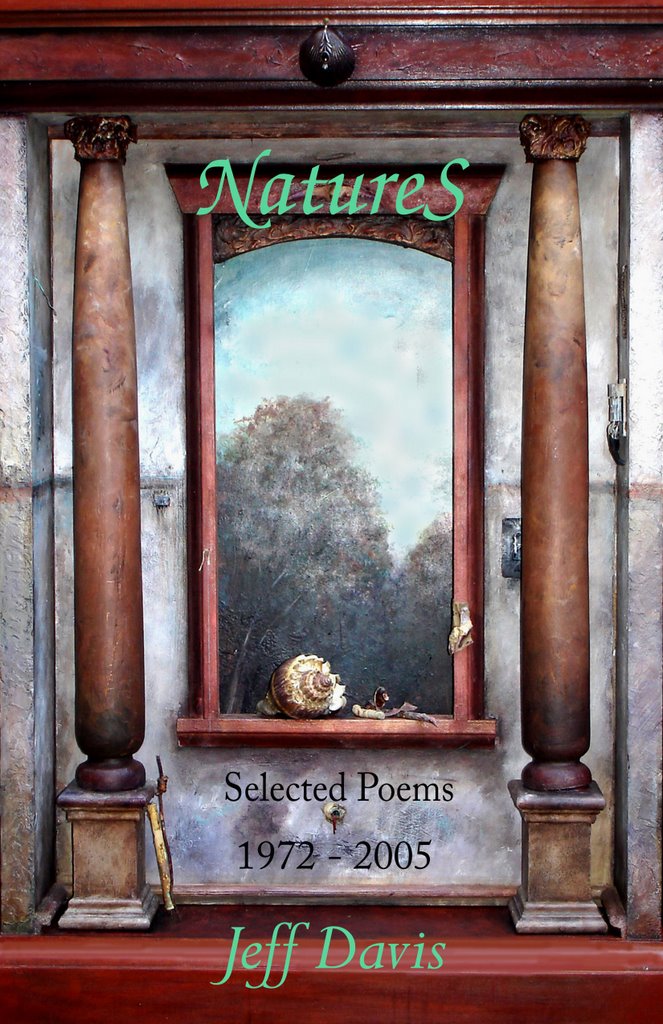Knotty Issues: A Note on Music and Poetry

Bill Knott made a remark in an interview early last year that made me just shake my head when I read it. He said he didn't like music. Wait, let him say it: "I don't like music; I try to listen to as little of it as possible. " Not only does he not like music, he seems to consider it almost evil:
The arrogance of composers and musicians is insufferable. They really believe Pater's dictum that all the other arts are inferior, that all the other arts "aspire towards the condition of music." But every military that ever marched out to murder rape and destroy was led by what art: were those armies fronted by poets extemporizing verse -- by sculptors squeezing clay -- by painters wielding brushes -- actors posing soliloquies? No, the art that led those killers forth, the art whose urgent strident rhythms stirred and spurred their corresponding bloodlust, was the art to which they felt closest, the art that mirrored their evil egos. That's why they have always put music up there at the vanguard of their war-ranks, because not only is it the emblem, the fore-thrust insignia of their purpose, it is their purpose: it is the condition to which they aspire.
Well ... sadly, language also has had some use in the cult of war. "Charge!" "Bombs away!" " Kill them all and let God sort 'em out." "The only good [fill in the blank] is a dead [fill in the blank]." come quickly to mind. Many a poem has been written to celebrate the deeds of men in war. Rejecting music because the agents of empires, nation states, city states, and tribes have used it, use it, to nefarious ends would be like rejecting language for the same reason. The only alternative is silence, because there's no form of human expression that's innocent in the way Knott wants music to be.
Poetry itself, of course, has it's own music. Ole Ezra (quaint as it might now be to mention) famously posited sound as one of the determinative dimensions of poetry: Melopoeia, Pound called it, going back to the Greek for his term, making-of-song, "wherein the words are charged ... with some musical property". The melo of the word, song, is close to mele, that ancient world's word for honey.
Though poetry is "the articulation of sound forms in time," to echo Susan Howe's still useful title, it's not "just" music - and a poetry that moves to the point of convergence with sound itself, it seems to me, loses many possibilities otherwise. Music may have some direct connection to our psyches and their (our) emotional states (most musicians I know believe that it does, and when I'm deep into the composition of a favorite composer or improvisational artist, I'd find it hard to argue otherwise), but language itself has its own deep roots in psyche, in thought and mind: indeed, it's mind's primary instrument of signification, the process of producing signs for - and of - the world. Language is what we use to describe and define the world and the activities of consciousness within it.That's why Pound also spoke of "Logopoeia," the making-of-logos, as one of poetry's other determinations. It's a complex thing, though, the logos. Here's Pound, from 1929:
Logopoeia, ‘the dance of the intellect among words’, that is to say, it employs words not only for their direct meaning, but it takes count in a special way of habits of usage, of the context we expect to find with the word.+ It holds the æsthetic content which is peculiarly the domain of verbal manifestation and can not possibly be contained in plastic or in music. *
Poetry is not just sound, but sound forms, and the difference between poetry and music is defined by the nature of the forms each creates. Poetry's are inextricably, ineluctably, if sometimes playfully, tied to the signifying nature of language. Slippery and problematic as it is (those features of articulation, as Pound implies, are just part of our material), its role in signification makes a crucial difference. Music's are not so tied.
Another part of a poem's meaning, though, is captured in the third of Pound's terms, "Phanopoeia," the-making-of-phanes (the root of our term "fantasy'), images. Often in a poem, the image, revealed in the structures of language available to the poet, is itself the logic of the poem, its logos. It's especially often true in short poems - like this one, from, who else, Bill Knott:
POEM TO POETRYPoetry,
you are an electric,
a magic, field—like the space
between a sleepwalker's outheld arms!
That is an image!
For Howe and others, the word itself often becomes image, and is used as graphic form more than as lexical signifier. Certainly, poetry works to extend language from its lexical ground - or even, sometimes, to sing through contradiction, or self-refuting lexical propositions. Lots of "experimental" (isn't real poetry always experimental?) and post-avant work explores this territory. It's another strategy to get the intellect to dance among words.
Bill's sixty-six this year, 2006; he could be an older brother - one with demons of his own, no doubt, I'll never understand. I do hope some sweet sounds catch his ear before too long, or he might go through the rest of his life without the pleasure, the relief, the release of the spirit that music provides.
~~~~~~~~~~~~~~~~~~~~~~~~~~~~~~~~~~~~~~~~~~
* N.Y. Herald-Tribune 20 Jan. xi. 5/4, via the OED.
The image is Lyre Player and Singer, Ur, 4750 BC, from a piece now in the British Museum.
Labels: Bill Knott, music, poets

2 Comments:
your comments are intelligent and erudite. . .
but going back to Pater: think how very different our
(contemporary) relation to music is from his, compared to his experience of it. how often would he have heard music? I ask that literally: how often and under what conditions would he in his daily life
have physically heard music, ie real music as opposed to any tune humming in his head? i would guess to answer that question by saying : not very often: on special occasions, concerts, recitals, probably church bells more than anything else, a street musician perhaps, though it's hard to imagine Pater walking on streets where such creatures thrived . . . Now compare that to our current experiencing of music, how it ubiquitously presses in us relentlessly from every medium, my god you can't make a phonecall without being assailed by it, every store you go into blasts your ears with it, every street is boomboxed and car-stereoed to death with its intrusive noise. . .
there is no escape from it. It greases the gears of consumer capitalism as much as the oil our government is currently killing Iraqis to gain control of. . ..If Pater had to hearsuffer what what the average USAer is deluged with on a daily basis, I doubt he would reverence music quite as highly as in his pre-massmedia'ed cloistered Oxford. . .
****
Anyway, my tirade against music was hyperbole, and not meant to be taken entirely unsatirically. But I can't be the only poet in the last hundred years who has chafed at Pater, and has resented the fact that poetry is not ranked first among the arts. And yes, I'll say it again, the complacency and arrogance of composers and musicians is insufferable. You ignored the part of my answer that compared poets to musicmakers, and their respective self-doubts. Poets are constantly questioning the value and the validity of poetry; do composers and conductors ever do that?
——Bill Knott
Yes, I can say that the few composers I know well constantly question the validity of their work. Maybe the composers I know are just better folks than the ones Knott knows? They have also loved setting my poetry to music, with a good deal of humility, I'll have to say, always giving the poetry the respect it deserves. And I've not yet met any arrogant musicians. The ones I know work damn hard. But then I live in the southern mountains, well away from big-city egos whether poetic or musical!
Post a Comment
<< Home